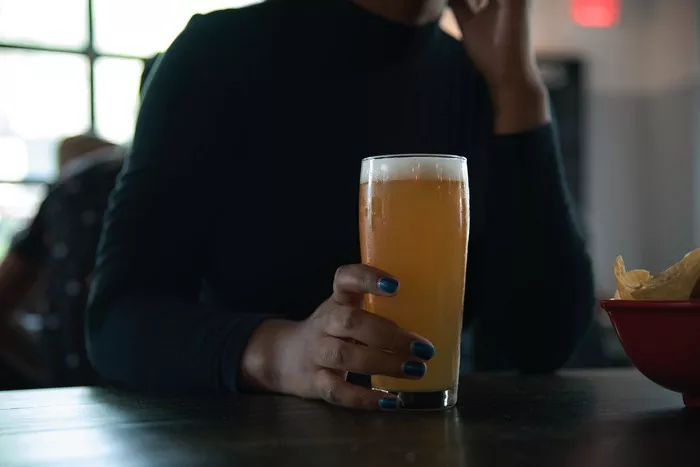When it comes to weight loss, choosing the right beverage can significantly impact your journey towards achieving your goals. Among the myriad of options available, cider and beer often find themselves under scrutiny due to their popularity and calorie content. In this article, we delve deep into the debate: Is cider better than beer for weight loss? By examining various factors such as calorie content, nutritional value, and alcohol percentage, we aim to provide a comprehensive analysis to help you make informed decisions about your beverage choices.
Calorie Content: A Critical Factor in Weight Loss
In the quest for weight loss, managing calorie intake is paramount. Both cider and beer contribute calories to your daily diet, but the extent varies significantly between the two. Cider, typically made from fermented apple juice, tends to have fewer calories compared to beer. On average, a standard 12-ounce serving of cider contains around 150-200 calories, whereas the same quantity of beer can range from 150 to 250 calories or more, depending on the type and brand. Thus, in terms of calorie content alone, one might argue that cider holds a slight edge over beer for weight loss purposes.
Nutritional Value: Beyond Calories
While calorie content is crucial, it’s essential to consider the nutritional value of the beverages in question. Cider, derived from apples, naturally contains some vitamins and minerals, including vitamin C and potassium. However, the fermentation process can diminish the nutrient content to some extent. On the other hand, beer, made primarily from barley, hops, yeast, and water, may contain small amounts of B vitamins, as well as minerals like magnesium and phosphorus. Nevertheless, neither cider nor beer can be considered significant sources of essential nutrients. Thus, when evaluating nutritional value in the context of weight loss, the focus primarily remains on calorie intake rather than micronutrient content.
Alcohol Percentage: Moderation is Key
Another factor to consider in the cider vs. beer debate is the alcohol percentage. Both beverages contain alcohol, which contributes to their calorie content and can affect weight loss efforts. However, cider generally tends to have a higher alcohol by volume (ABV) compared to beer. While the ABV can vary widely depending on the specific product, ciders often range from 4% to 8% ABV, whereas beer typically falls within the 4% to 6% ABV range. The higher alcohol content in cider means that consuming it in excess can lead to a higher calorie intake and potentially hinder weight loss progress. Thus, moderation is crucial regardless of whether you choose cider or beer.
Sugar Content: The Hidden Culprit
One aspect of cider that often goes unnoticed is its sugar content. Since cider is made from fruit juice, it naturally contains sugars, which can contribute to its calorie count. Additionally, some cider producers may add extra sugar during the fermentation process to enhance sweetness, further increasing its calorie content. In contrast, beer typically contains minimal sugar, as most of the fermentable sugars are converted into alcohol during the brewing process. Therefore, if you’re watching your sugar intake as part of your weight loss strategy, opting for beer over cider might be a preferable choice.
See Also: cocktail with indian food
Carbonation and Satiation: Feeling Full and Satisfied
Carbonation, present in both cider and beer, can influence how satiated you feel after consumption. Some studies suggest that carbonated beverages may increase feelings of fullness and satiety, potentially reducing overall calorie intake. However, the effect varies from person to person, and factors such as individual physiology and drinking habits come into play. That said, if you find that carbonated beverages help you feel more satisfied and curb cravings, choosing either cider or beer in moderation could support your weight loss efforts.
Alcohol and Appetite Control: Striking a Balance
Alcohol consumption can affect appetite regulation and food intake, which in turn can impact weight management. While moderate alcohol consumption may temporarily suppress appetite in some individuals, excessive intake can lead to overeating and poor food choices, ultimately sabotaging weight loss goals. Therefore, whether you opt for cider or beer, it’s essential to strike a balance and be mindful of portion sizes. Pairing your drink with nutritious food options such as lean protein, vegetables, and whole grains can help mitigate the effects of alcohol on appetite and promote better weight management.
Physical Activity and Lifestyle Factors: Putting It All Together
In the cider vs. beer debate, it’s crucial to consider individual differences in lifestyle and physical activity levels. While the calorie content of beverages matters, it’s just one piece of the puzzle. Factors such as overall diet quality, exercise habits, metabolism, and genetics all play significant roles in weight management. Additionally, alcohol consumption can affect sleep quality, stress levels, and motivation, which indirectly influence weight loss outcomes. Therefore, instead of fixating solely on whether cider or beer is better for weight loss, focus on adopting a balanced lifestyle that includes regular exercise, mindful eating, and moderation in alcohol consumption.
Conclusion: Making Informed Choices
In conclusion, the question of whether cider is better than beer for weight loss doesn’t have a straightforward answer. Both beverages can fit into a balanced diet and lifestyle when consumed in moderation. While cider tends to have fewer calories than beer, its higher sugar content and alcohol percentage warrant careful consideration. Ultimately, the key to successful weight loss lies in making informed choices that align with your individual preferences, health goals, and overall lifestyle. Whether you prefer the crisp taste of cider or the hoppy notes of beer, moderation, mindfulness, and balance are the cornerstones of a sustainable approach to weight management. So, the next time you reach for a drink, remember to consider the bigger picture and make choices that support your journey towards a healthier, happier you.


